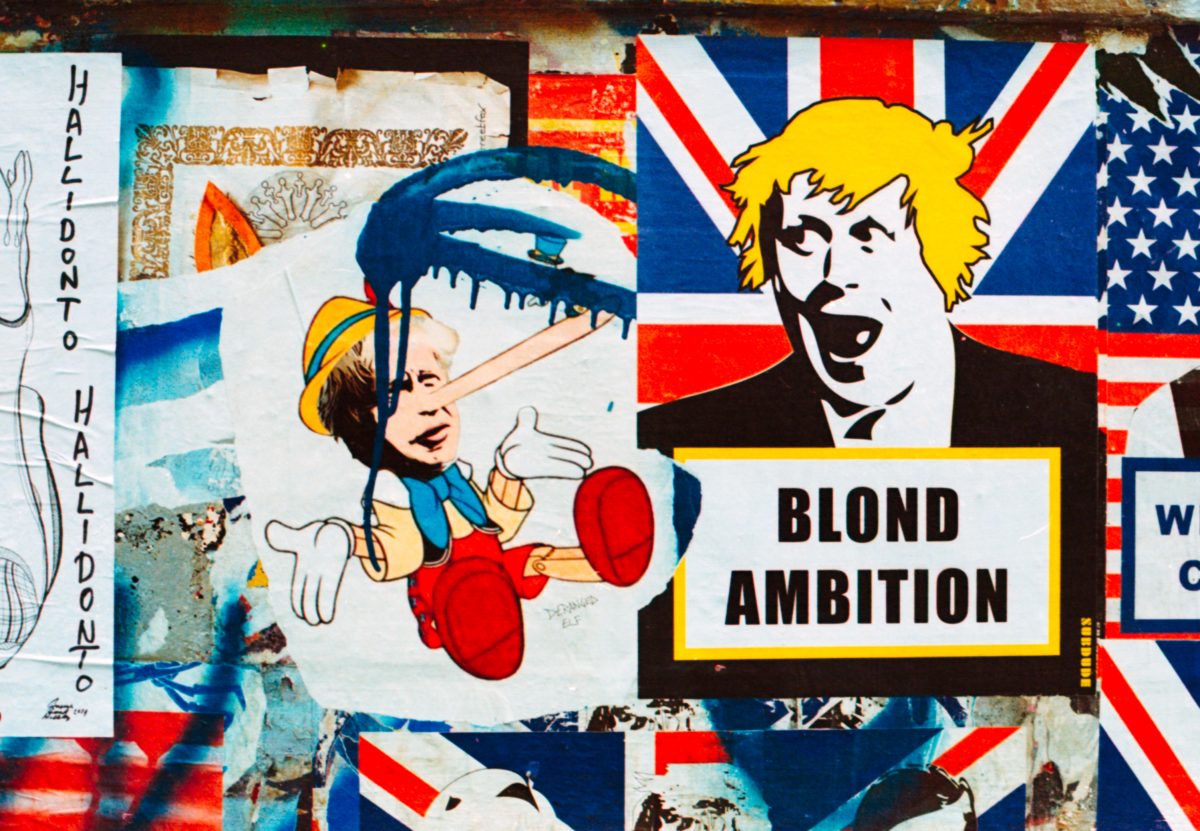The question isn’t — given how ridiculous a figure British Prime Minister Boris Johnson has always cut — why did he finally quit. It’s how did he get there at all and hang on. The answer is: because he’s ridiculous. It’s his totally open, secret weapon.
We greatly underestimate the political power of ridiculousness. During my earliest political engagement, against the Vietnam War, protesters “occupied” a prowar gathering at Columbia University. A prowar prof took the floor. He began ludicrously listing the benefits of war for Vietnamese peasants, using academic jargon and statistics. The protesters tittered, then guffawed — and relaxed.
An antiwar student from Germany rose. She said they had learned this is how the Nazis disarmed their opponents: by making them laugh at foolishness. Hitler in fact modelled his look on Charlie Chaplin, and when Chaplin attempted to reverse the trick in “The Great Dictator” — modelling the comic on the dictator — he may or may not have succeeded.
I’m not talking about humour or wit, which is part of politics, especially in the U.K. I mean clowning and buffoonery. In the 1960s, Soviet leader Nikita Khrushchev, a born buffoon, repeatedly interrupted the UN general assembly by pounding his shoe on his desk or shouting while other leaders spoke from the front. After one outburst, British PM Harold Macmillan looked up and wryly requested a translation. Everyone cracked up.
Boris does both. Like many upper-class Brits, he’s adept at wordplay (“Pincher by name, Pincher by nature” — his alleged words about Chris Pincher, the Tory MP accused of sexual harassment), particularly inside Parliament. But when he’s outside it, with “the people,” he becomes the goof, getting stuck on a zip wire or bowling over kids while playing rugby with them. That’s Boris the renowned campaigner.
Being clumsy on cue is a high talent. The great silent film comics had it, as did Jerry Lewis — though why we laugh when someone trips or falls down the stairs, remains, I’d say, a profound mystery.
The leader of the Labour opposition, Sir(!) Keir Starmer, has neither talent. He was the perfect foil for Boris. He tried some wordplay this week, calling Boris supporters “the charge of the lightweight brigade” — not realizing this perfectly describes how people see him. The deep fear of those like Starmer is that they’re ridiculous because they don’t know how to deal with their inherent human preposterousness, while Boris elegantly ducks behind his own and uses it to his advantage. He defuses hostility in advance, by showcasing his absurdity.
Existentially, for anyone lacking the privileges of class, there is something liberating in the thought that you could turn into a schoolboy at recess and ignore the current horrors at home or work, and something appealing in any politician who can embody that. Ordinary people admire wit but they feel somewhat diminished by it. They identify, however, with ridiculousness.
Donald Trump is the American bookend to Boris. He can’t really hide his profound sado-cynicism or his psychotic level of narcissism, which are a threat to others and even the planet. But he can, in his canny instinctive way, distract from it with ridiculous flourishes like riding down an escalator to announce his candidacy, or, when things are going badly with COVID, suggesting that people could disinfect their insides by drinking bleach. Suddenly the issue isn’t Trump’s menace to public health, it’s his own idiocy and ridiculousness.
Our version was former Toronto mayor Rob Ford, bustling around city council, breaking things — though not without a rough physical grace, till he died of it all. He was a tragic version of the political clown, a Pagliacci to Trump’s or Boris’s Bozo.
An aide to Rishi Sunak — who quit Boris’s cabinet this week, precipitating the deluge — said the difference between Sunak and Johnson was “one is sound, the other is a clown.” True enough, but he undervalues clowning. If Boris had managed one last pratfall as he left the lectern in front of 10 Downing Street, if only for the sake of a sense of consistency, it might have kept him around even longer.
This column originally appeared in The Toronto Star.




